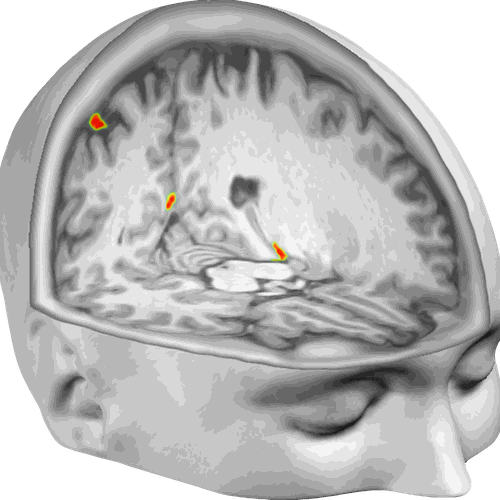
Our laboratory is located at Biomedicum, Karolinska Institutet, and includes a large virtual and augmented reality lab designed for full-body illusion experiments and equipped with numerous digital high-resolution head-mounted displays, analog and digital video cameras, a large robotic tactile stimulator, and video editing software. Additionally, we have two behavioral testing rooms outfitted with physiological recording devices. These include multichannel electromyograms, skin-temperature recording sensors, a magnetic motion-capturing system, equipment for assessing skin-conductance responses, heartbeat counting task, thermosensation, and eye tracking, among other devices.
Our laboratory feature a state-of-the-art transcranial magnetic stimulation (TMS) lab with advanced neuronavigation (Magstim) software, a high-density 128-electrode electroencephalography (EEG) system (active-two Biosemi with active electrodes), and Neuroconn DC-STIMULATOR PLUS for non-invasive transcranial electrical stimulation (tDCS, tACS, and tRNS).
For psychophysics experiments focused on bodily awareness and the sense of body ownership, we have developed two robotically controlled setups, each featuring three robots. These robots can stimulate two rubber hands and the participant’s real hand with high temporal precision and can be used in combination with EEG and TMS. Furthermore, for selective activation of nociceptive C and Aδ fibers in the skin, we have a Nd:YAP laser stimulator (Stimul 1340 Neurolas, Deka, Calenzano, Italy). We have engineered a motor-based lever system equipped with force sensors for force-perception experiments.
For functional magnetic resonance imaging, we have full access to a 3 T Siemens Prisma scanner at the Stockholm University Brain Imaging Center (SUBIC; Director: Rita Almeida) and a GE SIGNA Premier XT with high-performance gradient coils at the Solna MR-Centre, Karolinska University Hospital (Director: Dr. Tobias Granberg).
For fMRI experiments, our laboratory is equipped with MR-compatible head-mounted displays (VisualSystem HD, Nordic Neurolab), headphones (Nordic Neurolab), electromyography equipment (Biopac EMG 100C-MRI), and skin-conductance recording systems. We also use an MR-compatible glove to register finger movements (5DT Data Glove Ultra MRI 14) and a contactless motion-tracking device for finger movements. In addition, the lab features a robotically controlled MR-compatible system for rubber hand illusion psychophysics experiments and a separate setup for conducting “moving rubber hand illusion” experiments inside the scanner.
For ultra-high-field MR imaging, we have access to a state-of-the-art second-generation clinical 7 Tesla MRI system (Siemens MAGNETOM Terra X with a 32-channel receive and 8-channel transmit head coil) at Karolinska Hospital’s Huddinge MR-Centre.
In addition, we have local access to a state-of-the-art MEG system (Electa Neuromag TRIUX) at the National Facility For Magnetoencephalography NatMeg (Head: Christoph Pfeiffer) with complementary physiological recording devices (MEG compatible 128-channel EEG, plethysmography, EMG, ECG, and eye tracking) and sophisticated stimulus-delivery platforms (visual, auditory, olfactory, pain, and somatosensory, including a robot system for tactile stimulation of the hands with high temporal precision). We also have a pneumatically controlled MEG-compatible robotic system for rubber hand illusion experiments.
Last but not least, Martti Mercurio is our full-time research engineer, instrumental in building, designing, and coding complex experimental setups. As a civil engineer with 15 years of experience in the lab, Martti’s expertise spans mechanics, mechatronics, electronics, and computer programming, including proficiency in C++, among other skills.
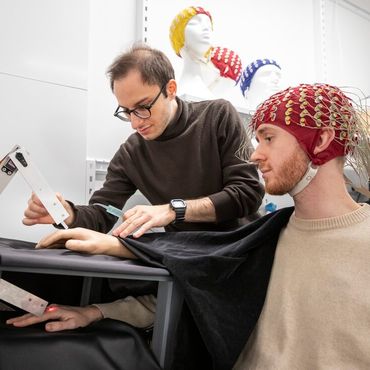
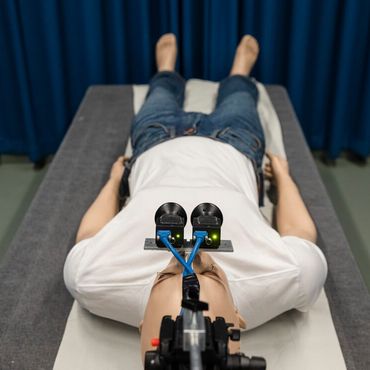
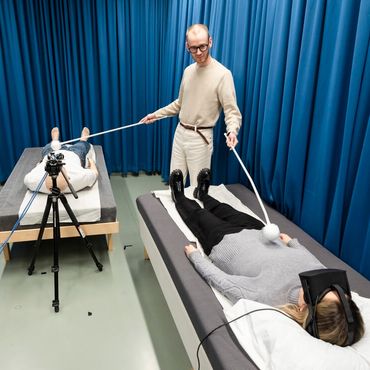
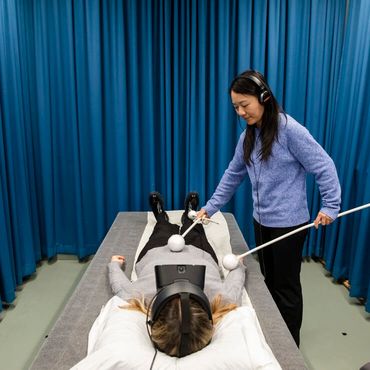
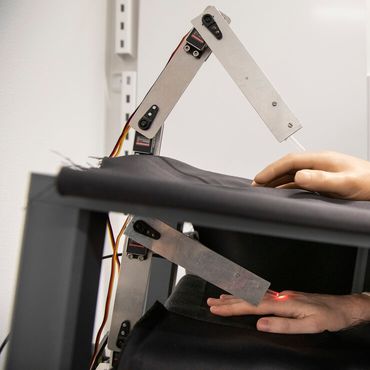
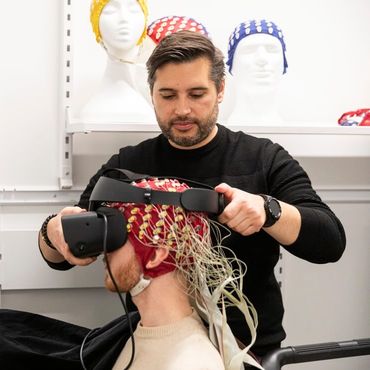
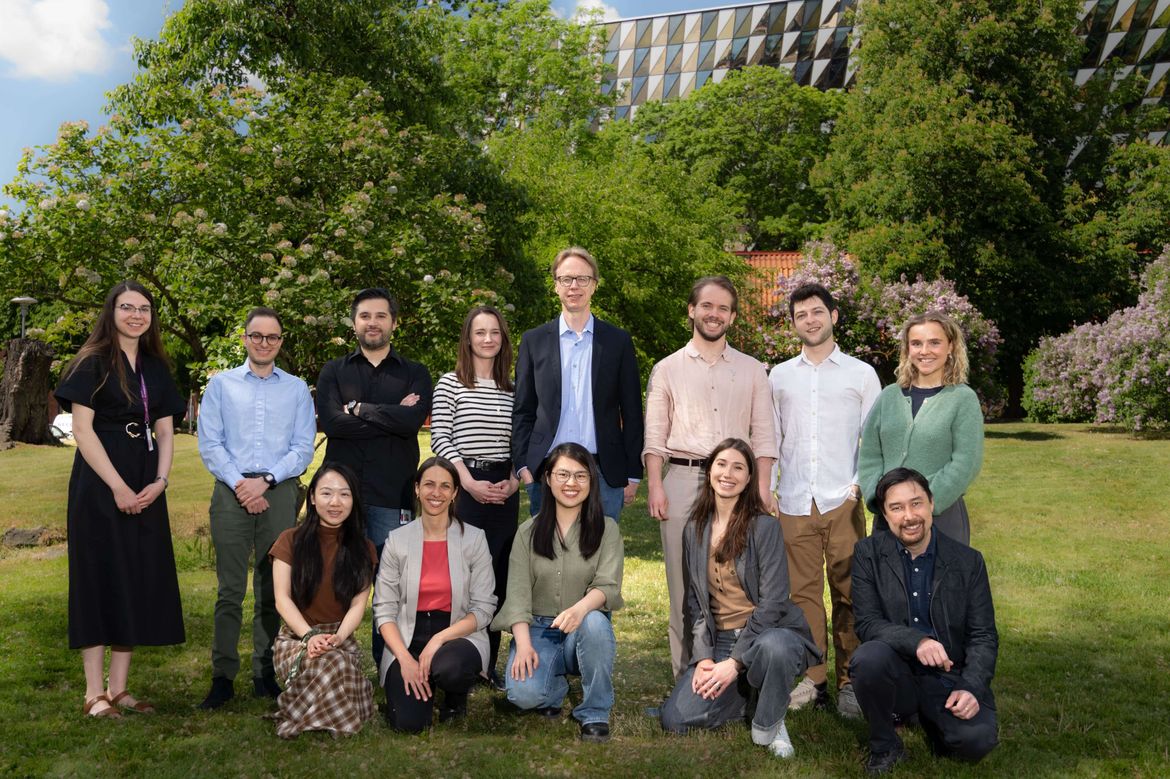
The BBS Lab fosters collaboration among lab members and encourages open discussion on all projects. In our weekly lab meetings, postdocs and students actively present their ongoing projects and the latest findings. These meetings also serve as a journal club, offering a platform to critically evaluate and learn from recent scholarly articles.
Our focus is on mutual support and constructive feedback, nurturing a creative and stimulating environment free from competition. After the lab meetings, we have Swedish “fika” (coffee or tea, with something sweet on the side).
Henrik Ehrsson has an open-door policy, and he also schedules regular meetings with PhD students and postdocs. His approach is not to micromanage but to mentor, guiding young investigators towards becoming independent scientists. This philosophy is rooted in providing independence, balanced with the right amount of guidance and support.
We have a flat organization, and each Ph.D. student and postdoc is a leader of their own project. Prof. Ehrsson is called “Henrik”. We strive for a friendly environment in which all are welcome, and we are committed to maintaining a respectful and professional atmosphere.